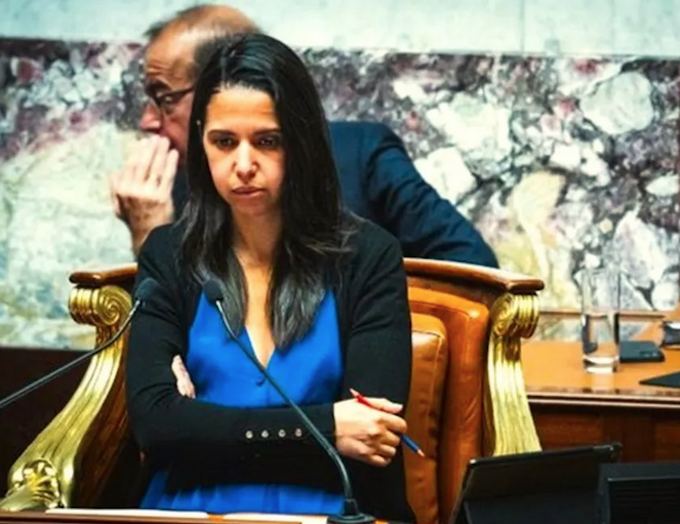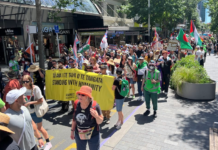
By Patrick Decloitre, RNZ Pacific correspondent French Pacific desk
As part of a never-ending rollercoaster of instability in French politics, the latest appointment of a Minister for Overseas has caused significant concern, including in New Caledonia.
In the late hours of Sunday, French President Emmanuel Macron approved the latest Cabinet lineup submitted to him by his Prime Minister Sébastien Lecornu.
A week earlier, Lecornu, who was appointed on September 9 to form a new government, made a first announcement for a Cabinet.
But this only lasted 14 hours — Lecornu resigned on Monday, October 6, saying the conditions to stay as PM were “not met”.
After yet another round of consultations under the instructions by Macron, Lecornu was finally re-appointed prime minister on Friday, 10 October 2025.
The announcement of his new Cabinet, approved by Macron, came late on October 12.
His new team includes former members of his previous cabinet, mixed with a number of personalities described as members of the civil society with no partisan affiliations.
The new Minister for Overseas is a newcomer to the portfolio.
Naïma Moutchou, 44, replaces Manuel Valls, who had worked indefatigably on New Caledonia issues since he was appointed in December 2024.
Valls, a former Socialist Prime Minister, travelled half a dozen times to New Caledonia and managed to bring all rival local politicians (both pro-France and pro-independence) around the same table.
The ensuing negotiations led to the signing of a Bougival agreement (signed on July 12, near Paris), initially signed by all local parties represented at New Caledonia’s Congress (Parliament).
The text, which remains to be implemented, provides for the creation of a “State of New Caledonia” within France, as well as a dual French-New Caledonian nationality and the short-term transfer of such powers as foreign affairs from France to New Caledonia.
However, one of the main components of the pro-independence movement, the FLNKS (Kanak and Socialist National Liberation Front) has since rejected the Bougival deal, saying it was not compatible with the party’s demands of full sovereignty and timetable.
Since then, apart from the FLNKS, all parties (including several moderate pro-independence factions who split from FLNKS in August 2024) have maintained their pro-Bougival course.
Manuel Valls, as Minister for Overseas, was regarded as the key negotiator, representing France, in the talks.
Who is Naïma Moutchou?
However, Valls is no longer holding this portfolio. He is replaced by Naïma Moutchou.
A lawyer by trade, she is an MP at the French National Assembly and member of the Horizon party led by former Prime Minister Edouard Philippe.
She is also a former deputy Speaker of the French National Assembly.
Unlike Valls, as new Minister for Overseas she is no longer a Minister of State.
She took part in a Parliamentary mission on New Caledonia’s future status in 2021-2022.
Valls’s non-reappointment lamented
In New Caledonia’s political spheres, the new appointment on Monday triggered several reactions, some critical.
Virginie Ruffenach, leader of the pro-France Rassemblement-Les Républicains (LR, which is affiliated to the National French LR), expressed disappointment at Vall not being retained as Minister for Overseas.
She said the new appointment of someone to replace Valls, the main actor of the Bougival agreement, did nothing to stabilise the implementation of the deal.
The implementation is supposed to translate as early as this week with the need to get the French cabinet to endorse the deal and also to put an “organic law” up for debate at the French Senate for a possible postponement of New Caledonia’s local elections from no later than 30 November 2025 to mid-2026.
Referring to those short-term deadlines, FLNKS president Christian Téin, who is still judicially compelled to remain in metropolitan France pending an appeal ruling on his May 2024 riots-related case, sent an open letter to French MPs, urging them not to endorse the postponement of the local elections.
Téin said such postponement, although already endorsed in principle by local New Caledonian Congress, would be a “major political regression” and would “unilaterally put an end to the decolonisation process initiated by the (1998) Nouméa Accord”.
The pro-independence leader insists New Caledonia’s crucial local elections should be held no later than 30 November 2025, as originally scheduled.
He said any other move would amount to a “passage en force” (forceful passage).
An earlier attempt, during the first quarter of 2024, was also described at the time as a “passage en force”.
It aimed at changing the French Constitution to lift earlier restrictions to the list of eligible voters at local elections.
Following marches and protests, the movement later degenerated and resulted in the worst riots that New Caledonia has seen in recent history, starting on 13 May 2024.
The riots caused 14 deaths, more than 2 billion euros (NZ$4 billion) in material damage, a drop of 13.5 percent of the French Pacific territory’s GDP and thousands of unemployed.
“With the current national cacophony. We don’t know what tomorrow will be . . . but the crucial issue for New Caledonia is to postpone the date of (local) elections to implement the Bougival agreement. Otherwise we’ll have nothing and this will become a no man’s land”, Ruffenach said on Monday.
“Even worse, there is the nation’s budget and this is crucial assistance for New Caledonia, something we absolutely need, in the situation we are in today.”
Wallisian-based Eveil Oceanien’s Milakulo Tukumuli told local public broadcaster NC la Première one way to analyse the latest cabinet appointment could be that New Caledonia’s affairs could be moved back to the Prime Minister’s office.
New Caledonia back to the PM’s desk?
Under a long-unspoken rule installed by French Prime Minister Michel Rocard (after he fostered the 1988 historic Matignon Accord to bring an end to half a decade of quasi-civil war), New Caledonia’s affairs had been kept under the direct responsibility of the French PM’s office.
This lasted for more than 30 years, until the special link was severed in 2020, when Lecornu became Minister for Overseas, a position he held for the next two years and became very familiar and knowledgeable on New Caledonia’s intricate issues.
“Lecornu is now Prime Minister. Does this mean New Caledonia’s case will return to its traditional home, the PM’s office?”, Tukumuli asked.
During an interview on French public service TV France 2 last week, Lecornu described New Caledonia as a “personal” issue for him because of his connections with the French Pacific territory when he was Minister for Overseas between 2020 and 2022.
“Some 18,000 kilometres from here, we have an institutional situation that cannot wait”, he said at the time.
A moderate pro-France politician, Philippe Gomès, for Calédonie Ensemble, on social networks, published an emotional public farewell letter to Valls, expressing his “sadness”.
“With you, (the French) Overseas enjoyed a consideration never seen before in the French Republic: that of a matter of national priority in the hands of a Minister of State, a former Prime Minister”,” he said.
Gomès hailed Valls’s tireless work in recent months to a point where “those who were criticising you yesterday were the same who ended up begging for you to be maintained at this position”.
Valls reacts during handover ceremony
“Your eviction from the French cabinet, at a vital moment in our country’s history, at a time when we need stability, potentially bears heavy consequences, especially since it now comes as part of a national political chaos for which New Caledonia will inevitably pay the price too”, Gomès said.
In recent days, as he was still caretaker Minister for Overseas, Valls has published several articles in French national dailies, warning against the potential dangers — including civil war — if the Bougival agreement is dropped or neglected.
Lecornu also stressed, during interviews and statements over the past week, that New Caledonia, at the national level, was a matter of national priority at the same level as passing France’s 2025 budget.
Speaking on Monday during a brief handover ceremony with his successor Moutchou, Valls told public broadcaster Outremer la Première that he was “very sad” not being able to “complete” his mission, including on New Caledonia, but that he did not have any regrets or bitterness.
He said however that he would make a point of “continuing to discuss” with the FLNKS during the month of October to possibly prepare some amendments “without changing the big equilibriums of the Constitutional and the organic laws”.
Race against time
As part of the Bougival text’s implementation and legal process, a referendum is also scheduled to be put to New Caledonia’s population no later than end of February 2026.
Lecornu is scheduled to deliver his maiden speech on general policy before Parliament on Wednesday, October 15 — if he is still in place by then.
On Monday, two main components of the opposition, Rassemblement National (right) and La France Insoumise (left) have already indicated their intention to each file a motion of no confidence against Lecornu and his new Cabinet.
Following consultations he held last week with a panel of parties represented in Parliament, Lecornu based his advice to President Macron on the fact that he believed a majority of parties within the House were not in favour of a parliamentary dissolution and therefore snap elections, for the time being.
Following a former dissolution in June 2024 and subsequent snap elections, the new Parliament had emerged more divided than ever, split between three main blocks — right, left and centre.
Since last week’s developments and the latest Cabinet announcement on Sunday, more rifts have surfaced even within those three blocks.
Some LR politicians, who have accepted to take part in Lecornu’s latest Cabinet, have been immediately excluded from the party.
On the centre-left, the Socialist Party has not yet indicated whether it would also file a motion of no confidence, but this would depend on Lecornu’s position and expected concessions on the very controversial pension scheme reforms and budget cuts issue.
This article is republished under a community partnership agreement with RNZ.














































